
Roorback
Definition:
a defamatory falsehood published for political effect
Degree of Usefulness:
About 500 roorbacks were posted to Facebook in the time it took you to read this sentence. Useful.
Some Trivia:
A number of words in English come from someone's name, and in most cases the name they come from is a real one. However, occasionally a fake name will sneak into an etymology, as is the case with roorback. The word comes from the fictitious Baron von Roorback, an invented person who served as the source of a particularly unpleasant rumor about presidential candidate James K. Polk in 1844 (that he had branded dozens of slaves with his initials). It is worth noting that our 11th president did in fact own dozens of slaves.
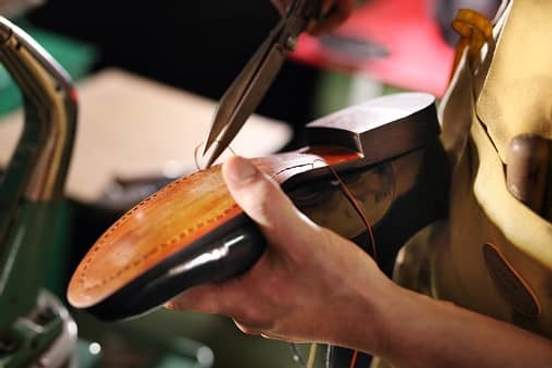
Ultracrepidarian
Definition:
“giving opinions on matters beyond one's knowledge”
(Oxford English Dictionary, 2nd ed.)
Degree of Usefulness:
Somebody speaking confidently about something they don't know much about? On the internet? Never.
Some Trivia:
This curious word is thought to have come from the Latin ultra crepidam (“beyond the sole”), a shortened and translated version of something said by the Greek painter Apelles in response to a shoemaker who had the nerve to criticize his painting.

Nidorosity
Definition:
“eructation with the taste of undigested roast-meat”
(Samuel Johnson, A Dictionary of the English Language, 1755)
Degree of Usefulness:
Not an everyday word, but valuable on the many holidays that involve grilling.
Some Trivia:
Samuel Johnson was an undisputed giant of lexicography, a man of immense learning and literary acumen, and perhaps the first person to single-handedly edit a great dictionary. He also provided an entry for a word that basically means “meat-burp.” We all contain multitudes.

Antithalian
Definition:
“opposed to festivities”
(Webster’s New International Dictionary, 2nd Ed., 1934)
Degree of Usefulness:
We all know someone for whom this word is appropriate.
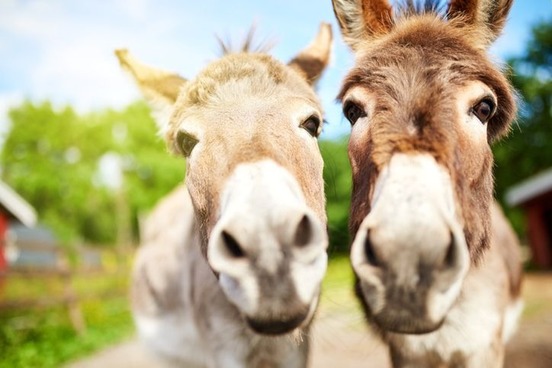
Jackassery
Definition:
a piece of stupidity or folly
Degree of Usefulness:
C'mon.
An Example:
The object of the Honorable who favors any such jackassery as running to Chicago, is to display himself before an admiring crowd as one of the statesmen of this “glorious Country!”
— St. Charles Republican Intelligencer (Charles City, IA), Feb. 12 1857

Novercal
Definition:
of, relating to, or characteristic of a stepmother
Degree of Usefulness:
Well, it certainly is specific. We'll give it that.
Some Trivia:
English appears to have no corresponding word for "characteristic of a stepfather."

Abirritate
Definition:
“to decrease the irritability of”
(Webster’s New International Dictionary, 2nd Ed., 1934)
Degree of Usefulness:
Could be used several times daily, really.

Amatorculist
Definition:
“A little insignificant lover; a pretender to affection”
(Samuel Johnson, A Dictionary of the English Language, 1755)
Degree of Usefulness:
Finally, an obscure word for your worst ex.
Some Trivia:
The Latin word amāre ("to have affection for, love, be in love, make love to") serves as the root of both amatorculist and amateur.

Job's comforter
Definition:
a person who discourages or depresses while seemingly giving comfort and consolation
Degree of Usefulness:
Probably more trouble to explain than it's worth.
An Example:
The Co-operative Union does not desire to act as a Job’s comforter to the Engineers in the hour of their defeat.
— Co-operation and the Engineers’ lockout: an appeal by the Co-operative Union to the trade unionists of Great Britain, 1898

Fleshment
Definition:
excitement associated with a successful beginning
Degree of Usefulness:
Fingers crossed! Break a leg! Best of luck!
An Example:
I neuer gaue him any:
It pleas'd the King his Master very late
To strike at me vpon his misconstruction,
When he compact, and flattering his displeasure
Tript me behind: being downe, insulted, rail'd,
And put vpon him such a deale of Man,
That worthied him, got praises of the King,
For him attempting, who was selfe-subdued,
And in the fleshment of this dead exploit,
Drew on me here againe.
— William Shakespeare, King Lear, 162
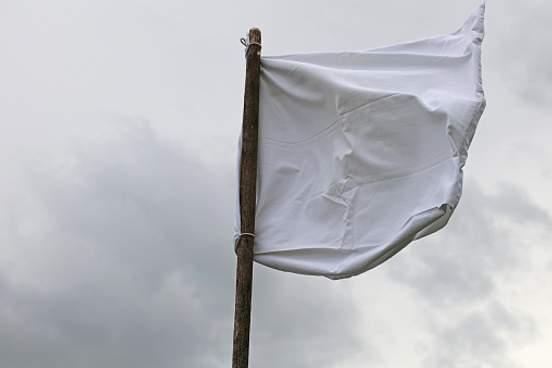
Capitulant
Definition:
one that capitulates
Degree of Usefulness:
It has potential. Don't give up on it.

Accismus
Definition:
“The pretended refusal of something one keenly desires”
(Oxford English Dictionary, 3rd ed.)
Degree of Usefulness:
If you want to use it, just say so.
An Example:
Acto, an Old Woman, so deform'd, that seeing her ugly Face in a Glass, she fell mad. Hence Accissare, to dote or to be mad. It's also said of her, that she used to refuse what she greatly desired, hence Accismus, Dissimulation. Her name is used for a Bugbear.
— Louis Moréri, The great historical, geographical and poetical dictionary being a curious miscellany of sacred and prophane history, 1694

Mundivagant
Definition:
wandering over the world
Degree of Usefulness:
You could probably use a vacation anyway.
Some Trivia:
Mundivagant has an etymological connection (the Latin word vagari, "to wander") with words such as noctivagant ("going about in the night : night-wandering") and extravagant, which once meant "wandering away."

Barbermonger
Definition:
a man who is devoted to or vain about his appearance or dress
Degree of Usefulness:
A good insult never goes out of style.
Some Trivia:
The word monger, meaning "broker" or "dealer," is usually used in combination with another word (such as barber). Some of these, such as fishmonger or ironmonger, are fairly self-explanatory (referring to someone who sells fish or iron). Others, such as scaremonger ("a person who circulates frightening reports of impending disaster") or wondermonger ("a person who tells of or exploits strange or freakish things") are somewhat more figurative.

Prefestinate
Definition:
“to make too much haste”
(Henry Cockeram, English Dictionarie, 1623)
Degree of Usefulness:
Not very. Also not to be confused with ordinary old festinate, which simply means "to hasten."

Maritality
Definition:
“Excessive fondness of a wife for her husband”
(Webster’s New International Dictionary, 2nd Ed., 1934)
Degree of Usefulness:
It gets points for potential rhyming in a poem. Someone alert the greeting card companies.
Some Trivia:
This word is the lesser-known spouse of uxoriousness, “the state of being excessively fond of or submissive to a wife.”

Anecdotage
Definition:
garrulous old age
Degree of Usefulness:
This word is a blending of anecdote ("a usually short narrative of an interesting, amusing, or biographical incident") and dotage ("a state or period of senile decay marked by decline of mental poise and alertness"). Not exactly the most memorable portmanteau.

Serendipitist
Definition:
one who finds valuable or agreeable things not sought for
Degree of Usefulness:
Lucky you, finding this word here.
Some Trivia:
Serendipitist comes from the word serendipity ("the faculty or phenomenon of finding valuable or agreeable things not sought for"), which was coined by writer Horace Walpole in 1754.

Snickersnee
Definition:
1. to engage in cut-and-thrust fighting with knives
2. a large knife
Degree of Usefulness:
Depends how often you find yourself discussing West Side Story.
An Example:
The mode of fighting in Holland, among the seamen and others, is well known by the appellation of Snicker-Snee. In this contest sharp knives are used; and the parties frequently maim, and sometime destroy each other.
— Corbett’s Weekly Political Register (London, Eng.), 7 Sept. 1805

Peracme
Definition:
“A point or period at which the prime or highest vigour is past; (in early use) spec. the point when the crisis of a fever is past.”
(Oxford English Dictionary, 3rd ed.)
Degree of Usefulness:
You'll know once you've reached it.

Spanghew
Definition:
to throw violently into the air; especially, to throw (a frog) into the air from the end of a stick
Degree of Usefulness:
If you find yourself frog-tossing on the regular, please message us with more details.
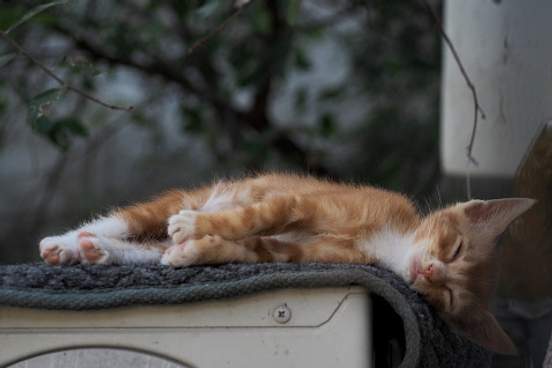
Consopition
Definition:
a lulling to sleep
Degree of Usefulness:
Sure, you're going to get a lot of reading done in bed. Keep telling yourself that.
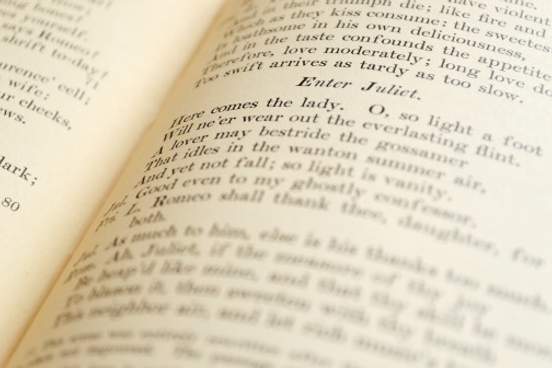
Neighborstained
Definition:
“Stained with the blood of neighbors”
(Webster’s New International Dictionary, 2nd Ed., 1934)
Degree of Usefulness:
Let's hope not.
An Example:
Rebellious Subiects, Enemies to peace,
Prophaners of this Neighbor-stained Steele,
Will they not heare? What hoe, you Men, you Beasts,
That quench the fire of your pernitious Rage,
With purple Fountaines issuing from your Veines.
— William Shakespeare, Romeo and Juliet, 1623

Apiculate
Definition:
ending abruptly in a small distinct point
Degree of Usefulness:
Sure, if you want to puzzle any non-botanists you talk to, go ahead.
An Example:
The leaves are cordate sagittate, about six inches across, abruptly apiculate, and produced at the base into two bluntish lobes, which are about three inches across.
— Horticulturalist and Journal of Rural Art and Rural Taste, Oct. 1874

Smaragdine
Definition:
yellowish green in color like an emerald
Degree of Usefulness:
A very useful word for those times when you want to say something is emerald-green, but would prefer a word that is hard to pronounce, harder to spell, and likely to confuse your audience.

Psittaceous
Definition:
like a parrot
Degree of Usefulness:
If you don't want to come across as too fancy you could always just use the word parroty ("like or of the nature of a parrot").

Pennyweighter
Definition:
a thief that steals jewelry by substituting a fake for a valuable piece
Degree of Usefulness:
Are you Indiana Jones?
Some Trivia:
The word comes from pennyweight jewelry, which itself comes from the English word pennyweight (“a unit of weight equal to ¹/₂₀ Troy ounce”).

Alluvium
Definition:
clay, silt, gravel or similar detrital material deposited by running water
Degree of Usefulness:
Will you need it often? No. But maybe a day will come when you see alluvium and get to point to it and say, "That's alluvium."

Chevelure
Definition:
a head of hair
Degree of Usefulness:
Why not try it out? It sounds fancy!

Backspang
Definition:
a trick or loophole that enables one to retreat from a bargain
Degree of Usefulness:
Nice try. You're not gonna get us putting that in writing.
Some Trivia:
Backspang is chiefly Scottish in use. We have no information indicating that it is the origin of the phrase, common among children making deals, no backsies.

Infelicific
Definition:
productive of unhappiness
Degree of Usefulness:
Is it useful or is it straight-up essential?
Some Trivia: An antonym of infelicific, in case you feel inclined to produce happiness instead of unhappiness, is felicific. Both words come from the Latin felix ("happy").

Slantindicular
Definition:
somewhat oblique
Degree of Usefulness:
A blend of slanting and perpendicular, this word serves you well in those all-too-common moments when describing something that's midway between 'very oblique' and 'not oblique at all.'

Raucity
Definition:
the state of being raucous
Degree of Usefulness:
This one goes out to everyone working at home with children.
Some Trivia:
Raucous, for those of you who are too well-behaved to know what this word means, may be defined as "boisterously disorderly" or "disagreeably harsh or strident." It comes from the Latin word for "hoarse," raucus.

Sloomy
Definition:
sleepy, sluggish
Degree of Usefulness:
Do you even have to ask?
Some Trivia:
A sloom is "a light sleep," although when used as a verb sloom may mean "to doze," "to drift," or "to become weak and flaccid."

Lip-worshiper
Definition:
one that worships in utterance only : one affirming devotion or fidelity without corresponding action
Degree of Usefulness:
Hmm. Maybe if you search long and wide you can find someone to whom this applies. Maybe.

Happify
Definition:
to make happy
Degree of Usefulness:
Happy can also function as a word meaning "to make happy," if you're feeling stingy with your letters and don't want to waste an I & F. But happify is such a charming word it's worth using the extra letters.

Antipelargy
Definition:
“the reciprocal love of children to their Parents, or (more generally) any requital or mutual kindness”
(Thomas Blount, Glossographia, 1656)
Degree of Usefulness:
A lovely concept marred by a word that doesn't really sound like its meaning.
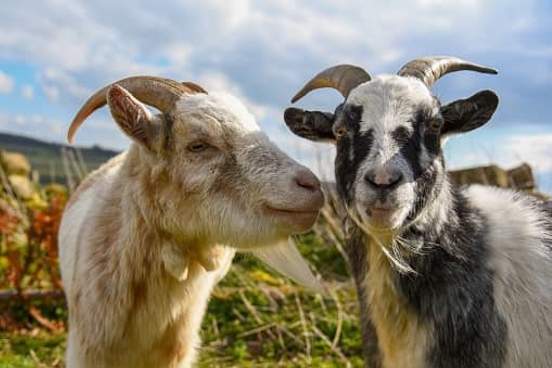
Hircine
Definition:
resembling a goat in smell
Degree of Usefulness:
For your sake, we hope you don't need this word out in the world.
Some Trivia:
If the number of words for a thing may be taken as evidence of how common it is the English-speaking people have encountered many things that make us think of goats, for in addition to hircine we have goatish & goaty (“of, relating to, or having the characteristics of a goat”), rammish (“resembling a ram; rank in smell or taste”), caprine (“like or suggestive of a goat”), and capric (“of or relating to a goat”).

Averuncate
Definition:
“to take away that which hurts, to weed”
(Henry Cockeram, English Dictionarie, 1623)
Degree of Usefulness:
Medium. Note: Not to be confused with avunculate, which is "a special relationship obtaining among some tribal peoples between a nephew and his maternal uncle."

Anonymuncule
Definition:
an insignificant anonymous writer
Degree of Usefulness:
See: Twitter.
An Example:
The True Anonymuncule—this little creature must not be confounded with the anonymous writers, who supply narratives or current events, and discuss public measures with freedom, but deal largely in generalities, and very little in personalities.
— Chicago Tribune, 25 Nov. 1871

Artophagous
Definition:
“Bread-eating”
(Webster’s New International Dictionary, 2nd Ed., 1934)
Degree of Usefulness:
This lovely word was included in the 2nd edition of our Unabridged dictionaries (published in 1934), but removed from the 3rd (published in 1961). The word was removed because people were no longer using it very much, and not because they stopped eating bread.

Backslide
Definition:
to lapse morally or in the practice of religion
Degree of Usefulness:
In addition to indicating a moral or ecclesiastical failing, backslide can be used with a potentially nonjudgmental meaning, "to revert to a worse condition." Useful.

Barbatulous
Definition:
“Having but a small beard”
(Oxford English Dictionary, 2nd ed.)
Degree of Usefulness:
A perfectly interesting word you'll rarely need.
Some Trivia:
If you need an adjective that simply refers to having a beard, and makes no mention of whether the beard is small or not, you may use bearded or barbate.

Agelast

Ambitionist
Definition:
"One excessively ambitious"
(Webster’s New International Dictionary, 2nd Ed., 1934)
Degree of Usefulness:
Even if you don't find it useful, it's still going to leave its business card with you.
An Example:
Be ambitious of peace: as earnest and eager after it, as the Ambitionist is after honour.
— John Trapp, A commentary or exposition upon all the Epistles, 1647

Satisfice
Definition:
to pursue the minimum satisfactory condition or outcome
Degree of Usefulness:
The above definition used to be several pages long, and filled with lots of explanatory text, etymology, and citations. Then we realized we could get away with just 8 words and it seemed to work well with the word itself. It works.
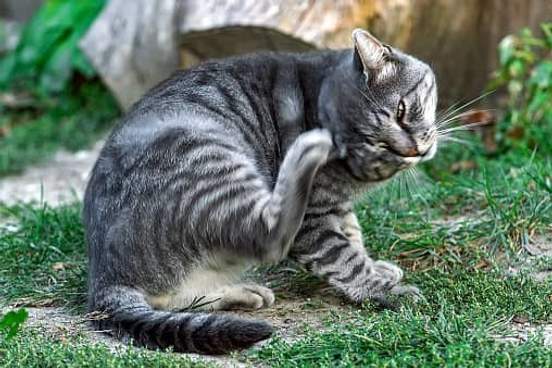
Yeuky
Definition:
itchy
Degree of Usefulness:
You don't save any syllables saying yeuky instead of itchy, but you do get the satisfaction of confusing someone.

Apricitie
Definition:
“The warmenes of the Sunne in winter”
(Henry Cockeram, English Dictionarie, 1623)
Degree of Usefulness:
Despite being a word beloved by almost anyone who comes across it, apricitie has largely failed to achieve success in the realm of general use, and is found almost exclusively in dictionaries and glossaries. We can do something about this.

Ramulose
Definition:
having many small branches
Degree of Usefulness:
Chances are, if you need this word you already know it and use it regularly.
An Example:
Black pools lay on the path, sheets of lacquer, in which he could see the ramulose structure of the leafless jacarandás, every detail of the branches, tenuous extremities faithfully reflected; until there fell into the picture a single drop of rain.
— Gordon Meyer, London Magazine, Oct. 1964

Gaincope
Definition:
to meet or intercept by a short cut
Degree of Usefulness:
It has a lot of upside.
An Example:
But now wee are to single out the second sort of Adversaries to the Ministers maintenance, and to gaincope them as wee can.
— Samuel Gardiner, The scourge of sacriledge, 1611





